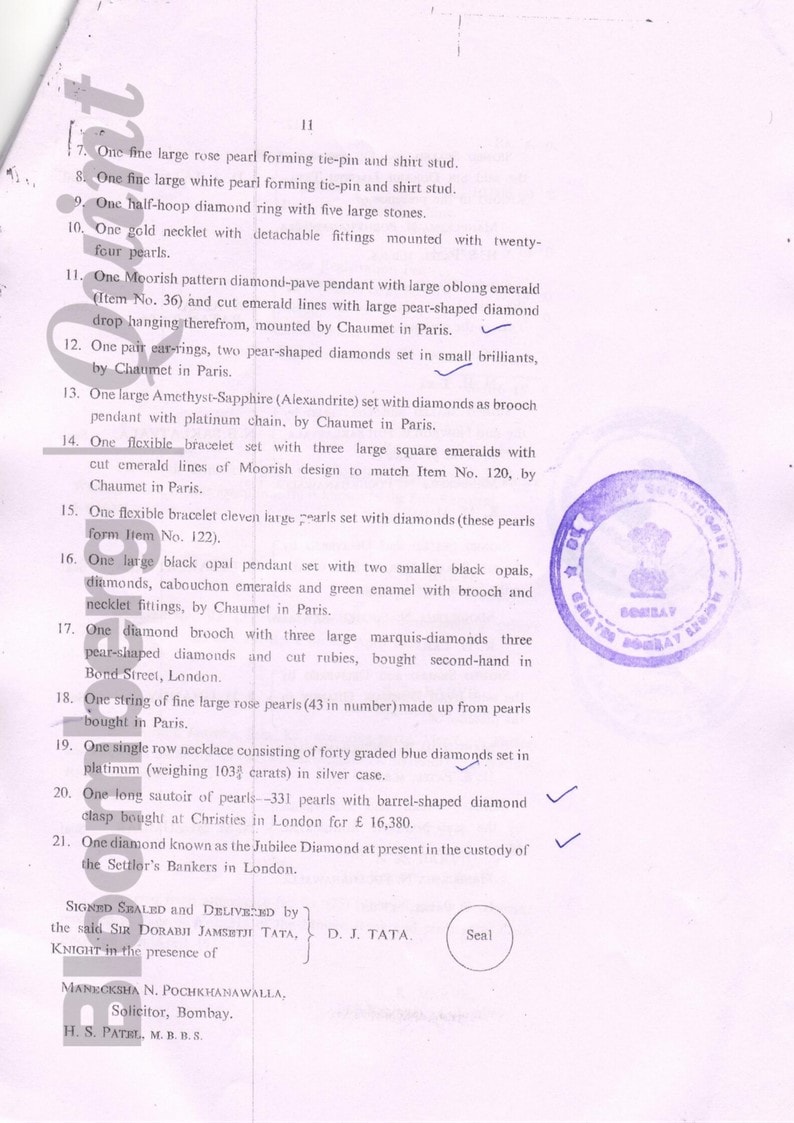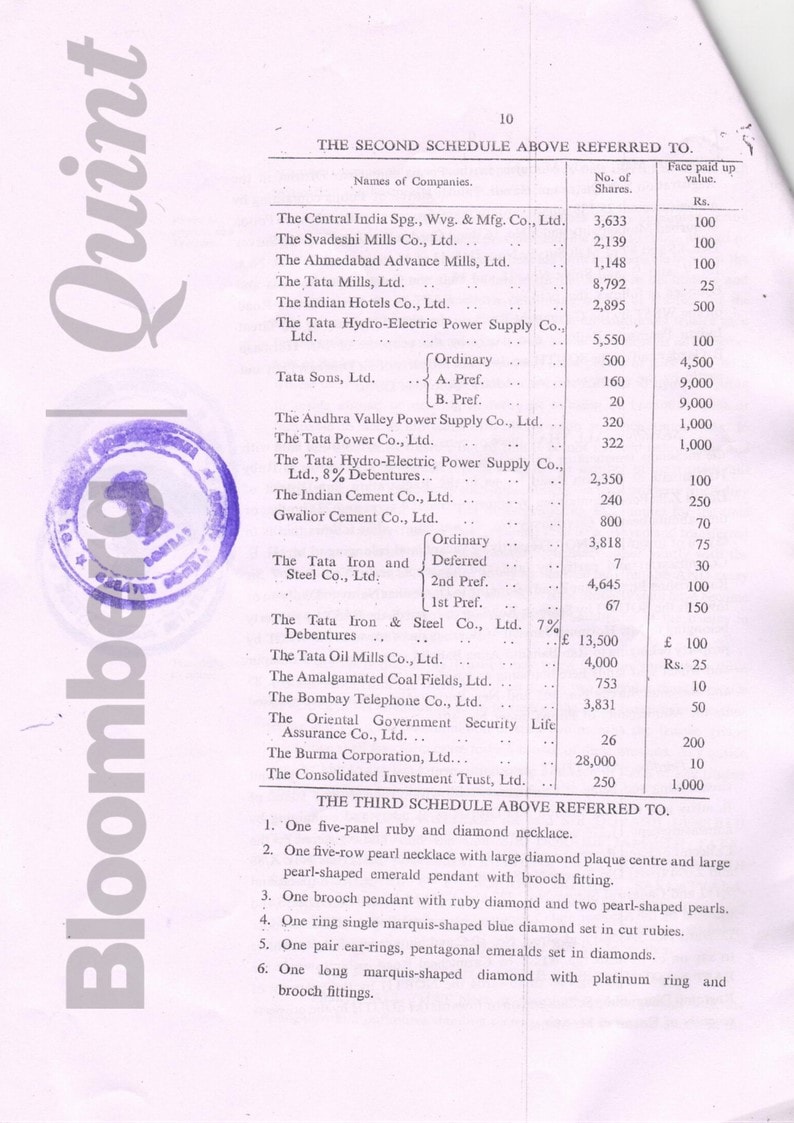
One single row necklace consisting of forty graded blue diamonds set in platinum weighing almost 104 carats and the world's sixth largest diamond - the “Jubilee Diamond” - would hardly qualify as trinkets for most. However, that is exactly how these two pieces of jewelry and 19 others have been classified in the original trust deed of the Sir Dorabji Tata Trust.

Besides these trinkets, four large parcels of land in Mumbai and Pune, shares in companies such The Swadeshi Mills Co. Ltd., The Tata Mills Ltd., and The Amalgamated Coal Field Ltd. along with a cash deposit of Rs 23 lakh with Tata Sons Ltd., made for the the founding corpus of the Trust.

Today the Trust, with 13 other Tata Trusts, is in the eye of a storm as Ratan Tata and Cyrus Mistry fight over Tata Sons, the main source of revenue for Tata Trusts.
Read: The Tata-Mistry Battle Is A Sideshow, The Real War Is Yet To Come
Founded in 1932, Sir Dorabji Jamsetji Tata was the settlor and a trustee of the eponymous trust mandated to establish, maintain and set up schools, hospitals, relieve distress caused by the forces of nature, do research work in areas such as medicine, and aid the Indian Institute of Science, Bangalore (co-founded by his father Jamsetji Tata) among other things. The other original trustees were, Lady Navazbai Ruttonji Tata, Nowroji Bapuji Saklatvala, Sorabji Dorabji Saklatvala, Jehangir Ratanji Tata, Jivaji Dinshaw Ghandy and Nadlal Manecklal Mazumdar.
Read: ‘Tata Trusts Are Not A Device To Control Tata Group, They Were Set Up For Philanthropy...'
The trust deed accessed by BloombergQuint, details many interesting features relating to the administration of the Trust. For instance it states clearly that the use of the funds shall be without any distinction of place, nationality or creed.
The deed requires the trustees to hold ordinary meetings at least twice a year and that a special meeting may be convened by any trustee at any time. It also requires the trustees to keep a minute book of their proceedings and proper books of accounts and for all provisions of the law in relation to the trust to be duly observed. The deed provides for the trustees to appoint and sack managers, clerks and other servants at their discretion.
Interestingly, the deed, at least this first version of it, says nothing of how the Trust hopes to exercise control over Tata Sons or the group's operating companies.
But it does insist that the Rs 23 lakh standing to the credit of Sir Dorabji Tata in the books of Tata Sons, shall not be withdrawn from Tata Sons as long as a majority of shares of the company are retained by the trust and trustees.
Finally, each Trustee was entitled to the then princely sum of Rs 1,000 every year, for their services.
Also Read
Cyrus Mistry Resigns From All Tata Group Companies, Hints Moving Court
Tata Sons Says Mistry Has Done Precious Little To Build Tata Group's Goodwill
Essential Business Intelligence, Continuous LIVE TV, Sharp Market Insights, Practical Personal Finance Advice and Latest Stories — On NDTV Profit.























